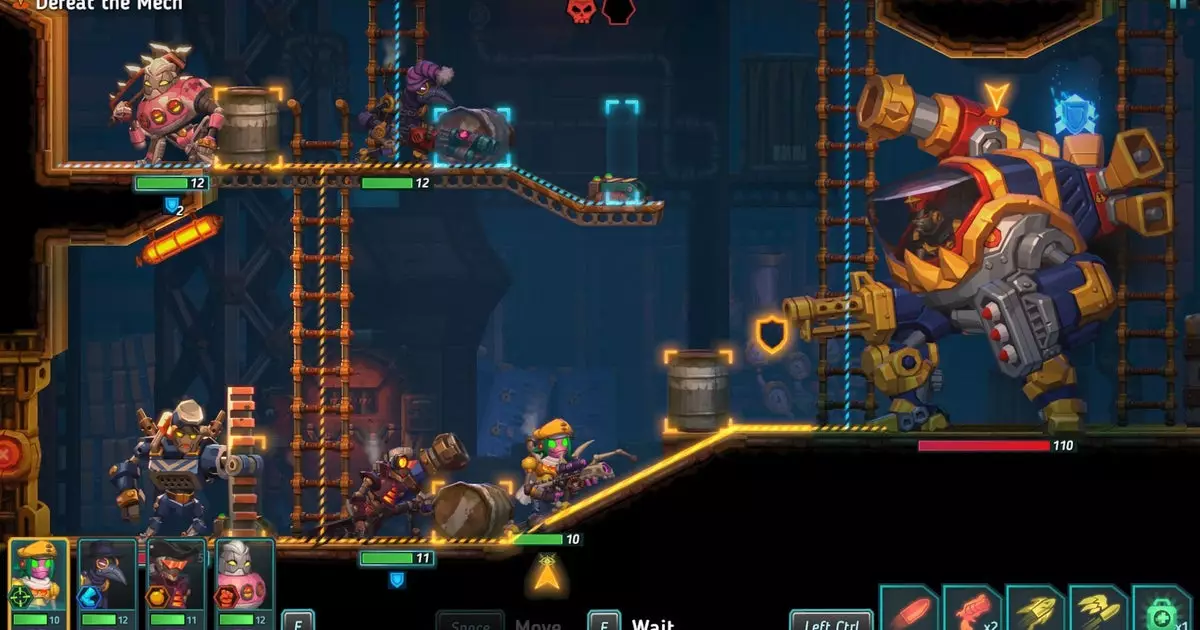In a disheartening turn of events, Thunderful Games, renowned for its vibrant SteamWorld franchise, has disclosed significant layoffs affecting between 80 to 100 employees. This drastic restructuring, as outlined in a recent press release, points to an unsettling trend in the gaming industry where overambitious aspirations clash with financial realities. The decision not only signifies job losses but also entails the cancellation of several game projects, suggesting a shift from original development to a publishing-centric model.
The context surrounding Thunderful’s layoffs reveals a broader concern within the gaming sector. Earlier in the year, the company had already laid off approximately 20% of its workforce, indicating that these issues are not new but rather part of a recurring struggle with financial stability. The press release alludes to a failure to meet revenue targets and ongoing negative cash flow, which the company attributes to over-investment over recent years. This situation raises vital questions about the sustainability of Thunderful’s previous business strategy and its implications for the future of its games.
Thunderful CEO Martin Walfisz has articulated a vision that includes a strategic pivot towards external publishing. He expresses regret at the layoff announcements but frames them as necessary steps to reduce fixed costs and enhance flexibility within the organization. Outsourcing development to external partners ostensibly allows for a diverse array of game releases without the burden of maintaining a large in-house development team. However, this strategic change also poses risks: the potential loss of creative control and identity in an industry that thrives on innovation and original ideas.
Moreover, relying on external partnerships could lead to a homogenization of content, where fewer unique gaming experiences are created, diluting Thunderful’s brand and the essence of its flagship SteamWorld series. This is especially concerning given that the gaming community often seeks authentic experiences crafted by dedicated teams familiar with the narratives and worlds they create.
The ramifications of these layoffs extend directly to the SteamWorld franchise itself. Although the latest release, SteamWorld Heist 2, garnered positive reception, the uncertainty surrounding the future of the series is palpable. By retaining only “some internal development capacity,” Thunderful’s commitment to the beloved steampunk robotic universe is put under scrutiny. As the corporate focus shifts predominantly to publishing, the possibility exists that the company may deprioritize its own intellectual properties, favoring a model in which they simply serve as a facilitator for other developers’ projects.
This trend poses a significant risk to the very foundation that has endeared the SteamWorld brand to its audience. The charm, wit, and intricacy inherent in each title stem from the passionate creativity of dedicated teams. If Thunderful downsizes its focus on original IP in favor of financial stability, it could alienate loyal fans who have come to expect quality experiences from the franchise.
While the current state of Thunderful Games may seem bleak, there remains a glimmer of hope for recovery and revitalization. A well-planned strategy that seeks to balance external partnerships with a commitment to internal development could render them more resilient and innovative. Investing in smaller, independent teams or embracing crowdfunding initiatives for game development could provide much-needed support and diversification, allowing new creative voices to flourish.
Moreover, transparency about rotating project priorities and intentions would go a long way in restoring confidence within the gaming community. Engaging with fans, sharing development updates, and leveraging social media platforms for direct communication could boost morale and foster a sense of connection amidst organizational changes.
Thunderful Games stands at a critical juncture, forced to navigate a rough economic landscape while grappling with the long-term implications of its strategic shift. The layoffs and restructuring underscore an essential truth in the gaming industry: ambitious projects and growth can lead to overextension, leaving companies vulnerable to market fluctuations. Moving forward, the challenge lies not only in recovering financially but in maintaining the creative integrity that has garnered a loyal following for franchises like SteamWorld. The road ahead may be fraught with challenges, but with the right approach, Thunderful could emerge stronger, fostering innovation and excitement within the gaming community once again.


Leave a Reply